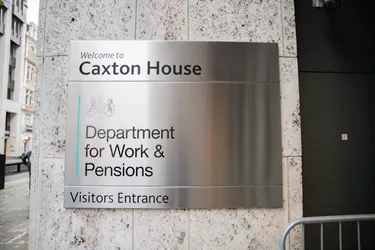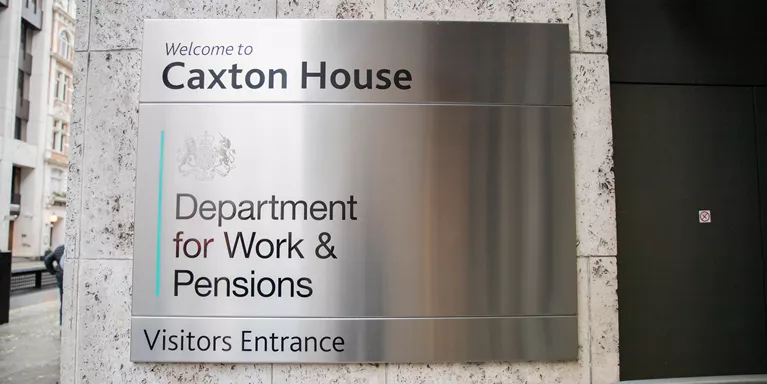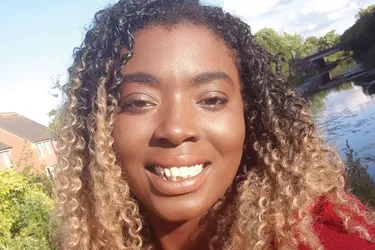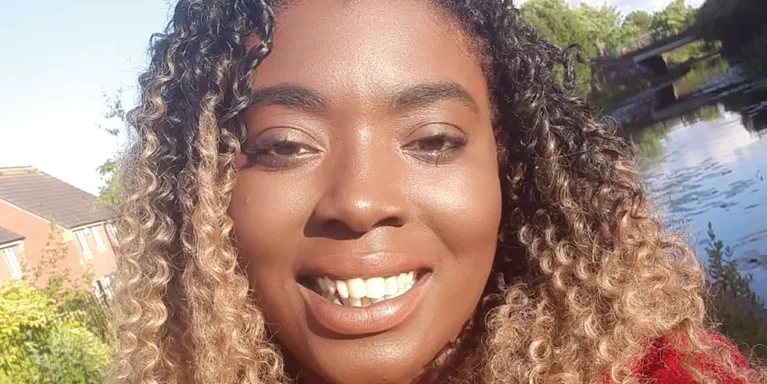The benefits system failed me
Anna blogs about how when she applied for PIP her mental health was not taken into consideration.
I’ve had depression since I was a child and my anxiety has got worse as I've got older. I don't have massive highs and massive lows. It's just a steady misery. When I get really low and suicidal thoughts become quite intrusive, I go to my GP and say I need support. Medication helps get me on a better level.
Last year, I was working part-time and struggling to pay bills. You get a certain amount more when you’re working part-time, but the more you earn the more gets knocked off your Universal Credit payments. My mental health was getting worse towards Christmas. I felt I needed to go back on medication, but I couldn't afford medication while I was working.
I was in a Catch 22: I want to work, but I can't afford medication when I'm working.
I was in a Catch 22: I want to work, but I can't afford medication when I'm working. Then if I'm signed off, I can afford medication but I'm not working, which doesn't help my mental health. That was when my psychotherapist said, "Have you considered PIP? It would give you a bit extra, and you'd be able to afford to work and pay your prescription medication charges." I wasn't aware that I could even apply for PIP (personal independence payment) until then.
It took me a few weeks to fill out the application form, because I had to wait for an appointment with my psychotherapist so she could help me fill that out, and for her to write a letter on my behalf.
Because of coronavirus, they then sent me a letter saying that my assessment would be over the phone. I was a bit stressed out before it happened and didn't sleep too well a couple of days before. My depression, as it does, was telling me I wasn’t going to get it anyway. There was a lot of pressure.
The lady who did the assessment was helpful and friendly, but she wasn't interested in mental health.
The lady who did the assessment was helpful and friendly, but she wasn't interested in the mental health side of things. I have arthritis in my left thumb, and she was much more interested in how physically my hand affected me doing either the cooking or household chores. It hurts sometimes, but it doesn't stop me doing things. It's my mental health that stops me doing things, not my physical health.
If I get in after working, and sit down and have a cup of tea because I'm knackered, I won't eat anything. Dinner simply doesn't happen. Or if I've got half an hour to cook it myself, and I've got to stand up while I'm cooking to see over things, I'm too exhausted by the time I've cooked it to eat it. Then I end up anaemic and ill in a different way. I have a massive problem with cooking, and that obviously has a knock-on effect on my mental health. That was one of the things I was trying to get across, but all they wanted to know is can you physically put pans on a stove.
I don't like talking on the phone anyway. I just wanted to say my bit and be done with it, so maybe my explanation wasn't as detailed as it should have been. My head was not at it’s clearest, so I was probably struggling for words. I find phones stressful because I find it hard to know when to talk. But if I’d had to go in person, I would have been anxious too. Going new places is anxiety inducing. Zoom would have been better for me. I do like to be able to see a face.
I got a letter saying I hadn’t qualified for the payment. wasn’t surprised, but I was still massively disappointed.
After the assessment, as I thought I would, I got a letter saying I hadn’t qualified for the payment. I wasn’t surprised, but I was still massively disappointed.
I think they said that I could appeal the decision. But I was pretty low after that, so I don't think I would've got myself into gear to do it in the two weeks I had. And even though it would have been amazing if I’d got the payment, I knew the actual tribunal would make me ill.
The benefits system doesn't work for people with mental health problems. It should be the Department for Work and Pensions (DWP) that is informing people what help they can access rather than finding out from your psychotherapist. Instead they just say, "We need to get you back into work, right, here's a job, can you do this? Here's another option. Can you do this? How many have you applied for?"
I don't think the system is conducive to helping people with mental health problems back into work either. PIP would have helped me get back into work. Now I need to be signed-off in order to be able to get medication, or I need to be working full-time, which makes me ill. Those are my two options and neither are satisfactory.


Information and support
When you’re living with a mental health problem, or supporting someone who is, having access to the right information - about a condition, treatment options, or practical issues - is vital. Visit our information pages to find out more.
Share your story with others
Blogs and stories can show that people with mental health problems are cared about, understood and listened to. We can use it to challenge the status quo and change attitudes.

















